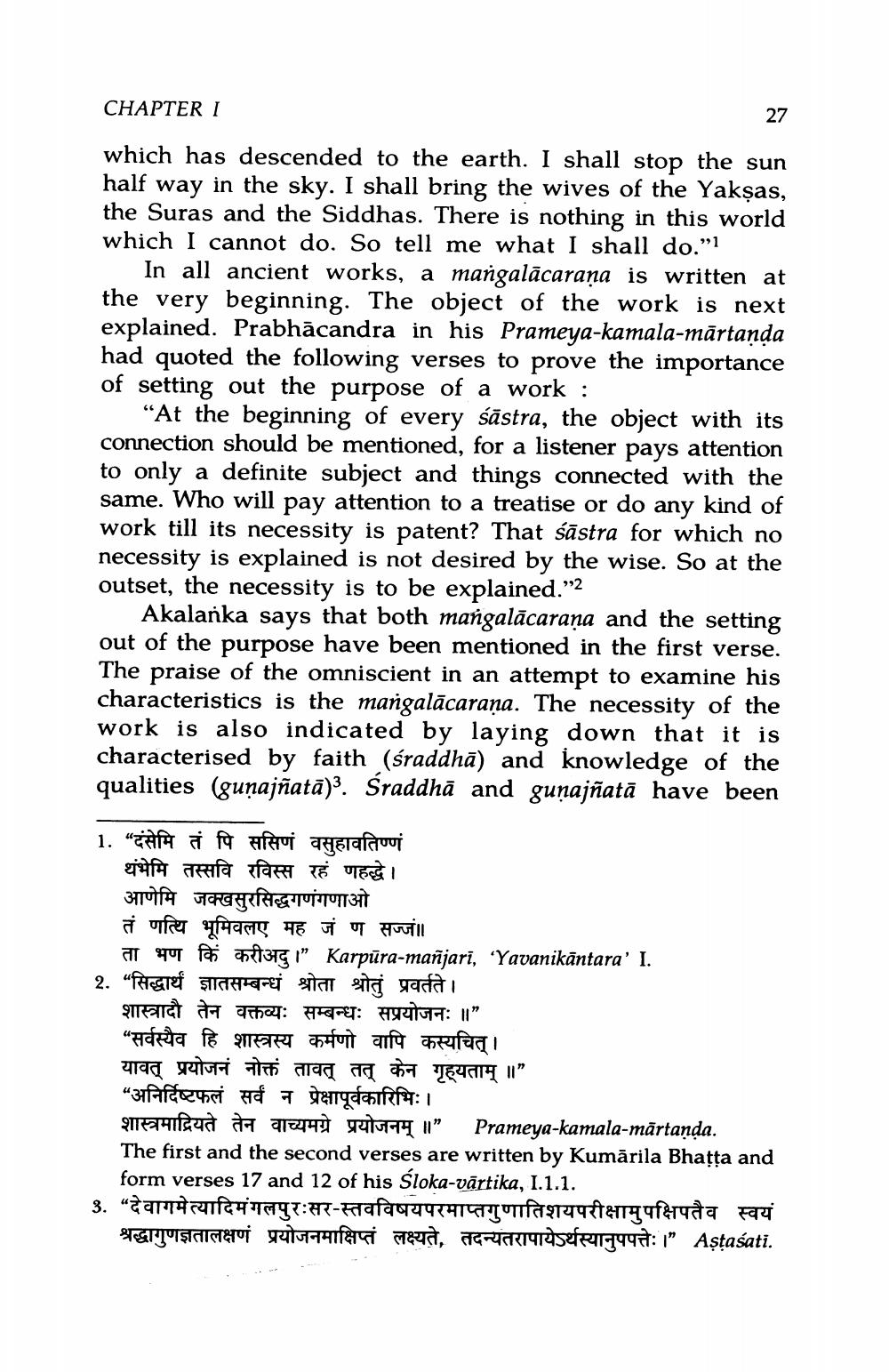________________
CHAPTER I
which has descended to the earth. I shall stop the sun half way in the sky. I shall bring the wives of the Yakṣas, the Suras and the Siddhas. There is nothing in this world which I cannot do. So tell me what I shall do."
In all ancient works, a mangalācaraṇa is written at the very beginning. The object of the work is next explained. Prabhācandra in his Prameya-kamala-mārtaṇḍa had quoted the following verses to prove the importance of setting out the purpose of a work :
"At the beginning of every sastra, the object with its connection should be mentioned, for a listener pays attention to only a definite subject and things connected with the same. Who will pay attention to a treatise or do any kind of work till its necessity is patent? That sastra for which no necessity is explained is not desired by the wise. So at the outset, the necessity is to be explained."2
Akalanka says that both mangalācaraṇa and the setting out of the purpose have been mentioned in the first verse. The praise of the omniscient in an attempt to examine his characteristics is the mangalācaraṇa. The necessity of the work is also indicated by laying down that it is characterised by faith (śraddha) and knowledge of the qualities (guṇajñatā)3. Śraddhā and guṇajñatā have been
1. “ दंसेमि तं पि ससिणं वसुहावतिण्णं थंभेमि तस्सवि रविस्स रहं णहद्धे ।
आमि जक्खसुरसिद्धगणंगणाओ
तं णत्थि भूमिवलए मह जं ण सज्जं ॥
ता भण किं करीअदु ।” Karpūra-manjari, Yavanikāntara' I.
2. “सिद्धार्थं ज्ञातसम्बन्धं श्रोता श्रोतुं प्रवर्तते ।
शास्त्रादौ तेन वक्तव्यः सम्बन्धः सप्रयोजनः ॥”
27
“सर्वस्यैव हि शास्त्रस्य कर्मणो वापि कस्यचित् ।
यावत् प्रयोजनं नोक्तं तावत् तत् केन गृह्यताम् ॥” “अनिर्दिष्टफलं सर्वं न प्रेक्षापूर्वकारिभिः ।
शास्त्रमाद्रियते तेन वाच्यमग्रे प्रयोजनम् ॥”
Prameya-kamala-mārtanda.
The first and the second verses are written by Kumārila Bhaṭṭa and form verses 17 and 12 of his Sloka-vārtika, I.1.1.
3. “देवागमेत्यादिमंगलपुरःसर-स्तवविषयपरमाप्तगुणातिशयपरीक्षामुपक्षिपतैव स्वयं श्रद्धागुणज्ञतालक्षणं प्रयोजनमाक्षिप्तं लक्ष्यते, तदन्यतरापायेऽर्थस्यानुपपत्तेः ।” Astaśati.




